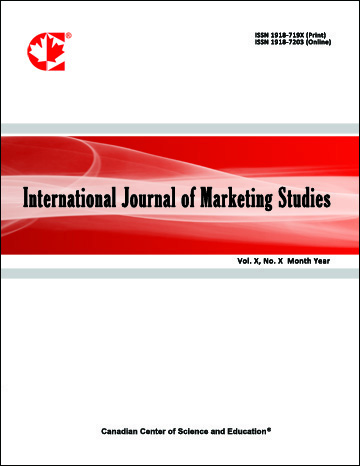Affective and Cognitive: Consumers Attitude toward Practicing Green (Reducing, Recycling & Reusing)
- Ehsaneh N. M. Nameghi
- M. A. Shadi
Abstract
Understanding consumers’ attitude toward practicing green behavior is vital for business as well as environmental reasons. The purpose of present study is to examine the green practicing concept (reducing, recycling and reusing) in an academic context from affective and cognitive perspective. Sample consisting of 315 university students gathered and analyzed using structural equation modeling technique (SEM). Findings indicate that environmental emotion and environmental cognition were significantly related to consumers’ attitude, while attitude had significant impact on consumers practicing green behavior elements namely, reducing, recycling and reusing. Findings of the present study can explain the determinants of practicing green behavior. In addition the findings can be used by public and private sector which encourage pro-environmental behaviors.
The present study has improved the understanding from pro-environmental behavior (reduce, reuse and recycling) and its antecedents from attitudinal approach. In addition present study confirms suitability of TRA as theoretical grounding in pro-environmental behavior studies by employing (SEM) which is theory-testing laden technique (Urbach and Ahlemann, 2010).
- Full Text:
 PDF
PDF
- DOI:10.5539/ijms.v5n1p157
Journal Metrics
Google-based Impact Factor (2021): 1.34
h-index (July 2022): 70
i10-index (July 2022): 373
Index
- Academic Journals Database
- CNKI Scholar
- EconBiz
- Electronic Journals Library
- Excellence in Research for Australia (ERA)
- GETIT@YALE (Yale University Library)
- Harvard Library
- IBZ Online
- Infotrieve
- JournalTOCs
- LOCKSS
- MIAR
- PKP Open Archives Harvester
- RePEc
- ResearchGate
- ROAD
- Scilit
- SHERPA/RoMEO
- Stanford Libraries
- UCR Library
Contact
- Alyssa SunEditorial Assistant
- ijms@ccsenet.org
